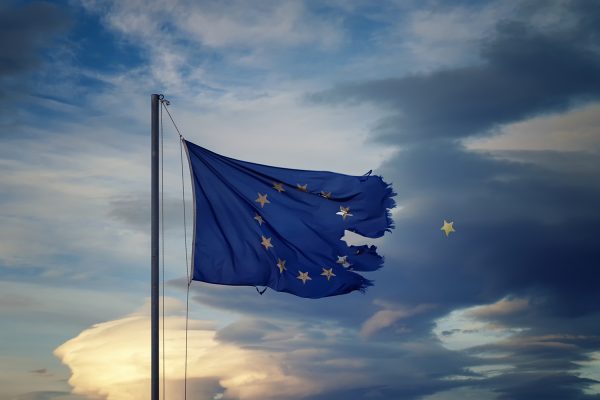
Euroskeptics complain that the European Union is not democratic enough. But more democracy in the EU would mean taking power away from the member states, which is not what they want either.
It’s a contradiction at the heart of the Euroskeptic argument that allows them to damn the EU if it does and damn the EU if it doesn’t.
Having it both ways
Consider debates around the European Parliament, which will hold elections in May. Euroskeptics simultaneously deride it as an ineffectual body that doesn’t represent “the will of the people” and an usurper of national parliaments. It can’t be both.
It’s the same story with the European Commission. Euroskeptics lament that commissioners are chosen in back rooms, but would they prefer an elected commission with a democratic mandate of its own? No. That would eat away at the “sovereignty” of the member states.
The EU is on the receiving end of many such hypocrisies.
Young Italians who feel the EU has abandoned them should focus their anger on their own politicians, who have for years ignored advice from Brussels to liberalize labor laws, which could create more jobs.
French farmers who struggle to compete in a global market should be grateful the EU is protecting them at the tune of billions of euros each year. Without the Common Agricultural Policy, they might have gone bankrupt long ago. Yet many have joined Yellow Vests protests against their pro-European president, Emmanuel Macron, and many will vote for Marine Le Pen in the European election.
Central and Eastern European governments who refuse to take in migrants simultaneously insist that Western European governments should pay full benefits to their migrants.
Greeks rebelled against the conditions of their bailout, but nobody thought to say “no” to the money.
Europe’s choice
The Euroskeptic contradiction deserves to be taken head on, though, because it goes to a fundamental choice about the future of the EU: should it go in the direction of a federation, where more and more power is transferred to Brussels, or a confederation, where member states cooperate on a case-by-case basis?
The EU is being pulled in both directions. The European Commission and the European Parliament tend toward centralization. Eurozone-only rules and institutions created during the sovereign debt crisis, and voluntary arrangements such as European defense cooperation, point to a multi-speed Europe.
A healthy competition between these choices is right. Sometimes only a coalition of the willing can make leaps forward. That is how the euro and the passport-free Schengen Area were created. But a permanent tier of second-class members is undesirable.
There is a role for sensible Euroskeptic opposition. The third option — not moving forward at all — must be heard. If the commission proposes centralizing something that is better left to the member states, and the European Council (in which national leaders meet) waters it down to something half-baked, the outcome could be worse than the status quo.
But that is not the Euroskeptic opposition we have. Many parties on the far left and the far right oppose closer European integration on principle but will not recognize the tradeoffs, let alone propose alternatives. Centrist leaders, fearful of losing voters to the extremes, water down far-reaching proposals in a bid to appease Euroskeptics only to incur their wrath anyway — while disappointing Europhiles.
Debates about the future of the EU are being held in think tanks and the halls of power, but European elections present voters with a simplistic choice: “Europe, yes or no?” Inevitably, “yes” prevails and the Euroskeptics go on to wage a useless opposition for another five years.
